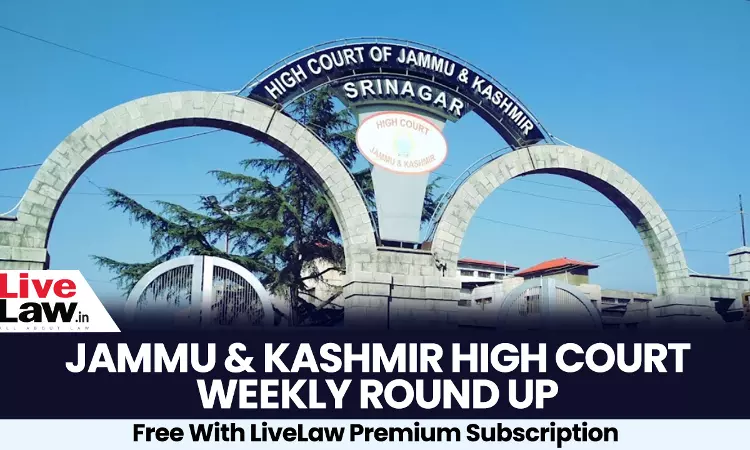Jammu & Kashmir And Ladakh High Court Weekly Roundup: March 4 - March 10, 2024
LIVELAW NEWS NETWORK
12 March 2024 11:09 AM IST

Next Story
12 March 2024 11:09 AM IST
Nominal Index:Neelam Sharma Vs Ashok Kumar 2024 LiveLaw (JKL) 31Principal Commissioner of Income Tax Versus Dr. Karan Singh 2024 LiveLaw (JKL) 32Choudhary Piara Singh Vs Kuldeep Singh 2024 LiveLaw (JKL) 33UT of J&K Vs Ram Rattan 2024 LiveLaw (JKL) 34Simranjeet Singh Vs Union Of India 2024 LiveLaw (JKL) 35Judgments/Orders: Co-Sharer of Property Cannot Be Restrained From Raising Construction...
